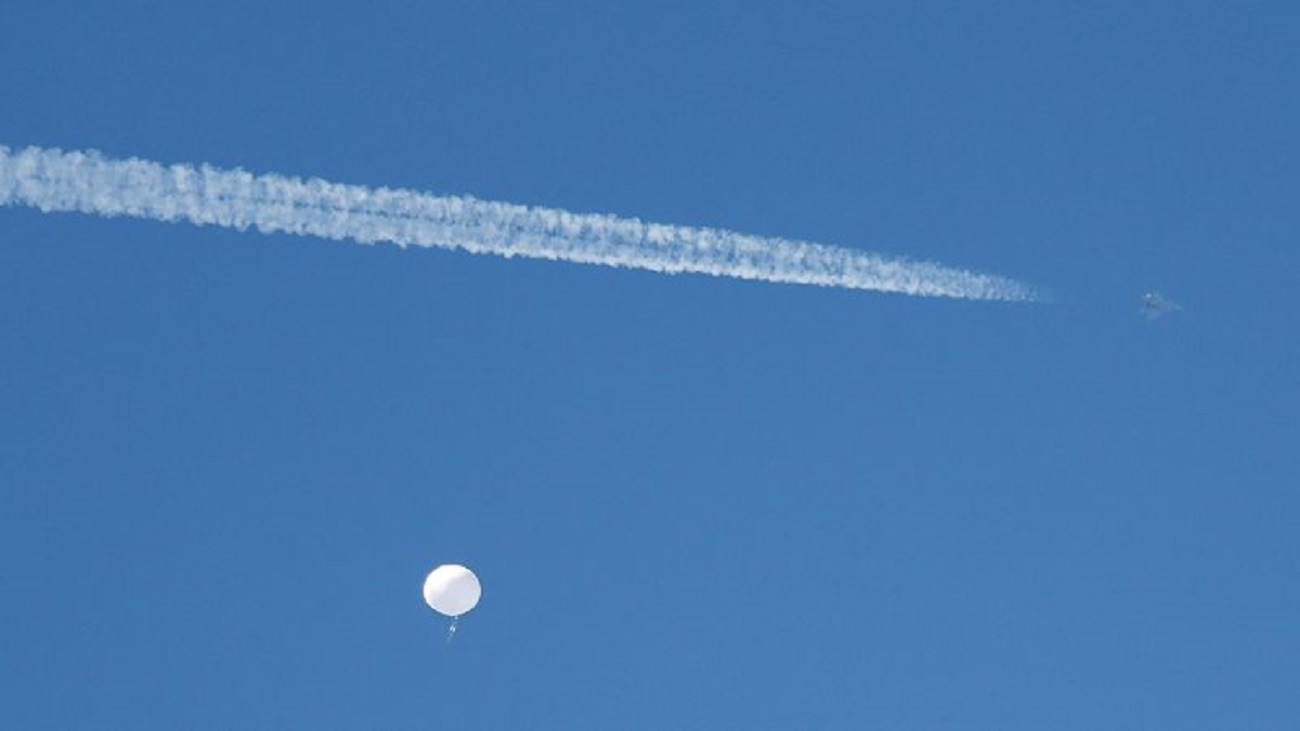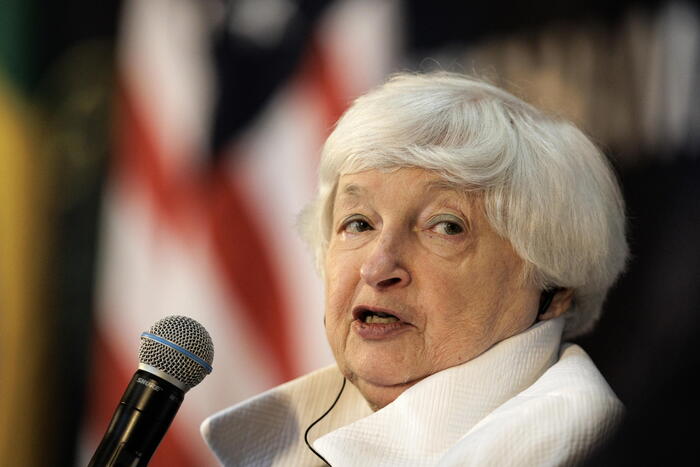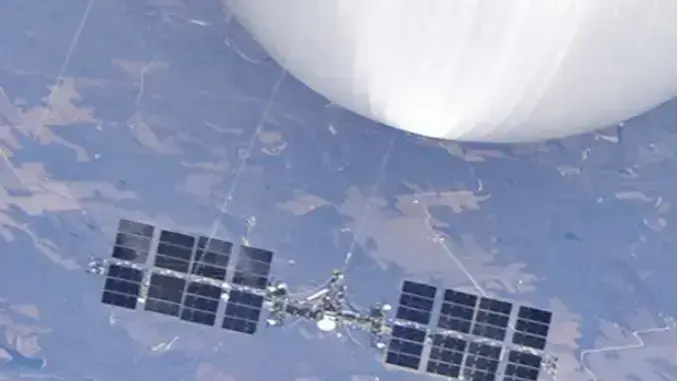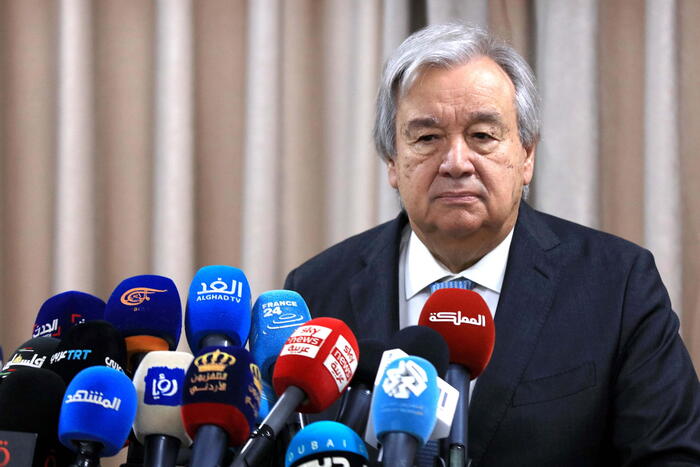What is aerial espionage and how does the case of the Chinese balloon impact the relationship with the US 2:45
Hong Kong (CNN) --
With the start of the new year, China appears to be hoping for an easing of tensions with the United States in the coming months.
The Chinese Foreign Ministry said so late last month, when it said China would "welcome" a visit by US Secretary of State Antony Blinken, an expected trip that analysts said Beijing saw as an opportunity. to help strengthen its economy and mend strained diplomatic ties.
So when a high-altitude balloon from China, with a payload the size of three coaches and equipped with what US authorities have described as surveillance equipment, was sighted over the continental United States, hovering visibly over a State with key military assets and ultimately causing an international incident, critical questions naturally arose as to what had happened and why.
What we know about the Chinese balloon that flew over Colombia and Costa Rica
China maintains that the craft, shot down by the United States on Saturday over the Atlantic Ocean, was a weather balloon blown off course.
And, according to analysts, he has given signs that he was caught off guard by the incident and wanted to head off any possible damage, not only attributing the situation to factors beyond his control, but also expressing his "regret" in a statement on Friday.
While some crucial facts about the situation remain unclear, Beijing's official response—and the timing of the incident, which led to the US postponing Blinken's visit—suggests that its leadership is grappling with how to manage a diplomatic crisis that has exacerbated the very tensions they hoped to overcome.
advertising
New Chinese balloon flies over Latin American countries 0:43
"By all indications, the Chinese leadership was looking forward to having direct talks with Blinken...it would be highly plausible that (Chinese leader Xi Jinping) wanted to make sure everything went smoothly in the lead up to the visit," Chong Ja Ian said. , Associate Professor of Political Science at the National University of Singapore.
"For this to happen is puzzling and strange," he added.
The posibilities
Beijing has given scant details about the origin of the balloon, first confirming it came from China in an explanation issued more than 12 hours after the Pentagon announced it was tracking the object.
In a statement issued late Friday afternoon (local time), the Chinese Foreign Ministry described the balloon as a "civilian aircraft used for research, mainly meteorological," which had strayed "far from its intended course." due to its "limited self-steering ability" and to westerly winds.
In a subsequent statement on Sunday, Beijing appeared to link the device to "businesses" and not to its government or military, though in China the prominence of state-owned companies and a robust military-industrial complex blur the line between the two.
This Monday, Beijing admitted that, in recent days, a second balloon had "severely deviated" from its planned route and had crossed the skies of Latin America and the Caribbean "by mistake."
However, he declined to provide more information about which entity made the balloons.
The balloon that flies over Latin America belongs to China, according to Beijing
The United States, for its part, has come forward with details framing the incident in a surveillance effort prompted by a fleet of Chinese spy balloons that it says have been sighted on five continents in recent years.
Observers of China's political elite say the timing of this unsubtle intrusion, amid a concerted effort by China to reengage with the world and tone down its own combative rhetoric, suggests explanations ranging from serious miscalculation by Beijing to a costly miscommunication within the government or with another entity.
Steve Tsang, director of the SOAS China Institute at the University of London, said any surveillance operation affecting US airspace would "almost certainly" have to have the approval of top leadership, including Xi.
US President Joe Biden and Chinese leader Xi Jinping meet on the sidelines of the G20 Summit in Bali on November 14, 2022.
That suggests, according to Tsang, that either there was a "total miscalculation" in which the Chinese leader and his advisers thought the US would not respond firmly to the balloon, or the top leadership did not "connect the dots". among various activities to realize that sending a balloon would have the potential to affect Blinken's visit.
"Xi wanted Blinken to visit and discuss matters of mutual concern. Xi is trying to patch up the economy after the hogwash zero policy disaster and US restrictions on semiconductors. So he couldn't want an incident over the globe." that derailed that meeting," he added.
In Singapore, Chong raised another possibility: "Like many other large bureaucracies... the right hand may not know what the left is doing and there may be a simple lack of coordination," he said.
The consequences
Although the background to the incident remains unclear, as the Chinese authorities have yet to provide additional information, and may not, the result is a heavy blow to Sino-US diplomacy and Beijing, according to experts.
"I think the Chinese leadership at the national level was clearly upset and overshadowed by this balloon," said Dali Yang, a political scientist at the University of Chicago, noting that the Chinese Foreign Ministry's initial explanation was "unusually conciliatory" with its bizarre expression of "regret", especially in comparison with his often aggressive rhetoric of recent years.
"They were clearly hoping that this could be smoothed over in some way, especially given the context of Secretary Blinken's planned visit at the time," Yang said.
Beijing's rhetoric hardened significantly after the US military shot down the balloon, with China's foreign ministry accusing the US of "overreacting" and "seriously violating international practice."
The Ministry of Defense, for its part, expressed its "solemn protest", warning that China "reserves the right to use the necessary means to deal with similar situations."
This Monday, the Chinese Ministry of Foreign Affairs stated that the remains of the balloon do not belong to the United States.
"The airship is from China, not the US," a ministry spokesman told a regular news briefing, when asked whether the US should return the remains of the balloon to China.
Chinese surveillance balloons during the Trump administration were discovered only when Biden took office, official says
"This is a delicate matter that has been developed very publicly between the two countries. Therefore, there are positions," Yang added.
"Chinese leaders also have a domestic audience to attend to," she said, alluding to Beijing's need not to appear weak.
China, however, has shown signs of trying to keep nationalist rhetoric around the incident at bay, rather than fanning outrage, as it has done before during events that stoked US-China tensions, such as a visit by the then-president of China. House of Representatives Nancy Pelosi to Taiwan last summer (in the northern hemisphere).
Chinese state media also announced on Saturday that the head of the country's weather service had been relieved of his post, in a move some analysts saw as an attempt to buttress Beijing's position that the high-altitude balloon was civilian in nature and it was mainly for meteorological purposes.
However, the official was already expected to step down after being appointed to a new post in January.
But the diplomatic fallout from the incident will have serious and long-lasting consequences, experts say.
"This balloon incident sets us back significantly, because the timetable for US-China relations for the next few months doesn't leave much room for either side to readjust," said Jude Blanchette, holder of the Freeman Chair in China Studies. China at the Center for Strategic and International Studies (CSIS), adding that the meeting had been an opportunity to set some limits on the relationship.
China will hold its annual legislative sessions next month, in which a reshuffle of the central government leadership will be formalized.
In the United States, House Speaker Kevin McCarthy is scheduled to visit Taiwan, which will inevitably draw the ire of Beijing.
"I think the relationship is going to a very, very dark place if both parties don't find some way to put some ground under it," Blanchette said.
China










/cloudfront-eu-central-1.images.arcpublishing.com/prisa/KMEYMJKESBAZBE4MRBAM4TGHIQ.jpg)


